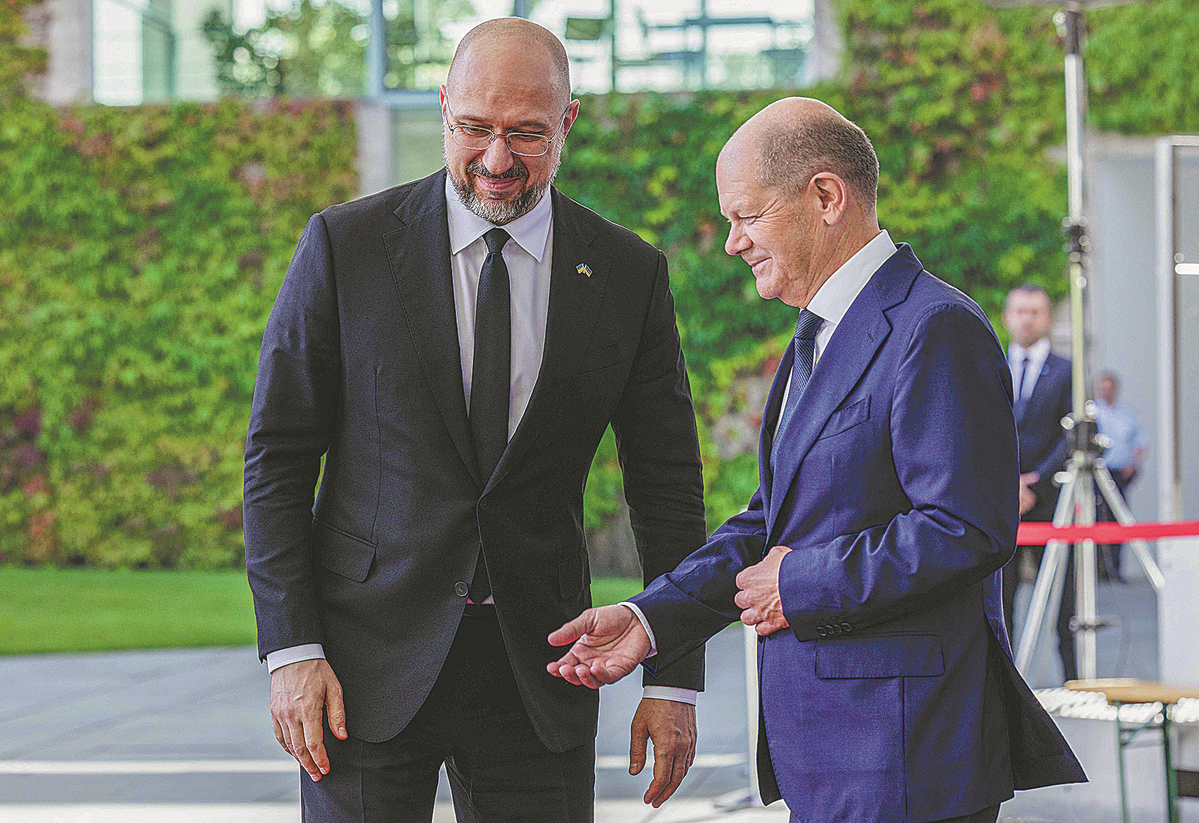Berlin tops up aid for hard-hit households
By CHEN WEIHUA in Brussels | China Daily | Updated: 2022-09-06 07:32

At $65b, 3rd relief package aims to ease blow to Germans from soaring prices
Germany's coalition government announced on Sunday a 65 billion euro ($65 billion) financial relief package to help households cope with the soaring inflation driven largely by runaway energy prices.
The third relief package unveiled since the outbreak of the Russia-Ukraine conflict on Feb 24 includes plans for continued cheaper public transport tickets and tax breaks for energy-intensive firms. It also includes a one-off payment of 300 euros for pensioners and 200 euros for students to cover energy costs.
The two previous packages included a gas rebate, a 9-euro-per-month transport ticket, and an energy price flat rate for workers.
German Chancellor Olaf Scholz said the windfall profits being made by some energy companies will be used to help fund the package.
He said he was "very aware" that many Germans are struggling with the rising prices and that his government is prepared to offer help. "We take these concerns very, very seriously," he said.
Inflation in Germany reached 7.9 percent in August. The German central bank indicated that the rate could hit around 10 percent toward the end of this year, the highest in decades.
The latest package was announced after a long debate among Germany's three coalition parties: the Social Democrats, the Greens and the liberal Free Democratic Party.
"We will get through this winter," said Scholz, a Social Democrat.
He said the government has made "timely decisions" to avoid a winter crisis, referring to moves such as filling gas storage and restarting coal-fired power plants.
The weekend moves were criticized by the opposition Christian Democratic Union-Christian Social Union bloc. Jens Spahn, the deputy chair of the conservative alliance, told German media that there was "nothing concrete" in either of the plans to relieve the high cost of electricity, replace the 9-euro public transport ticket or give subsidies for energy-intensive firms.
"The implementation will take a long time, instead of relieving the burden immediately and in a targeted manner," he said, adding that the "biggest problem, the extremely high gas price" has not been tackled.
EU energy ministers will meet in Brussels on Friday to discuss the energy crisis, including proposals to reform the electricity market and control gas prices.
The German government said that it is ready to go it alone if no deal is reached in the meeting. But Scholz said he is "confident" that member states can reach an agreement.
Farther north, Sweden and Finland plan to roll out measures to deal with the shocks after Russian energy giant Gazprom shut down the Nord Stream 1 natural gas pipeline citing technical problems.
Sweden plans to provide 250 billion Swedish crowns ($23.2 billion) in liquidity guarantees to its energy companies, and Finland will do likewise with 10 billion euros in its market.
"This has had the ingredients for a kind of Lehman Brothers of the energy industry," Finnish Economic Affairs Minister Mika Lintila said on Sunday, in reference to the 2008 collapse of the investment company that accelerated events in the global financial crisis.
Swedish Prime Minister Magdalena Andersson warned that her country was facing the prospect of a "war winter".
Ukrainian Prime Minister Denys Shmyhal on Sunday visited Germany, where he voiced hope that Germany would become a leading player in Ukraine's efforts to build up its air defenses. The minister was seeking more heavy weapons from Berlin.
Defense ministers of NATO allies are expected to arrive in Germany on Thursday for a meeting led by the United States to coordinate military needs for Ukraine.
The alliance's stance on Russia drew protests by nearly 70,000 people at a rally in Prague, the capital of the Czech Republic, on Saturday afternoon.
The protesters called for measures to ease the impact of the energy crisis and some also pushed for the country's military neutrality.
Agencies contributed to this story.
























